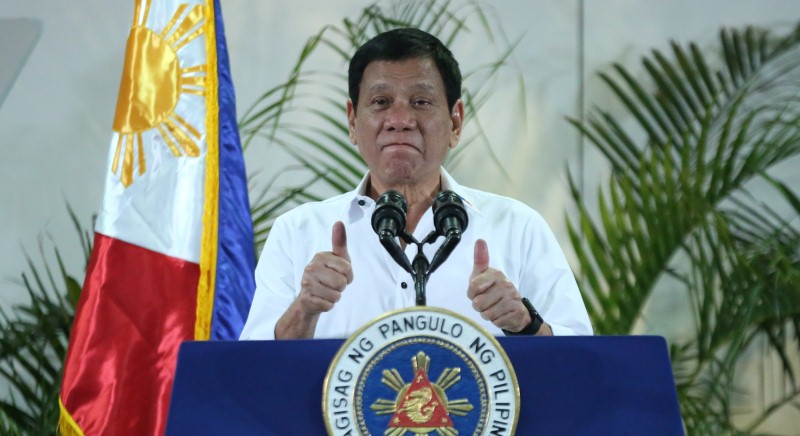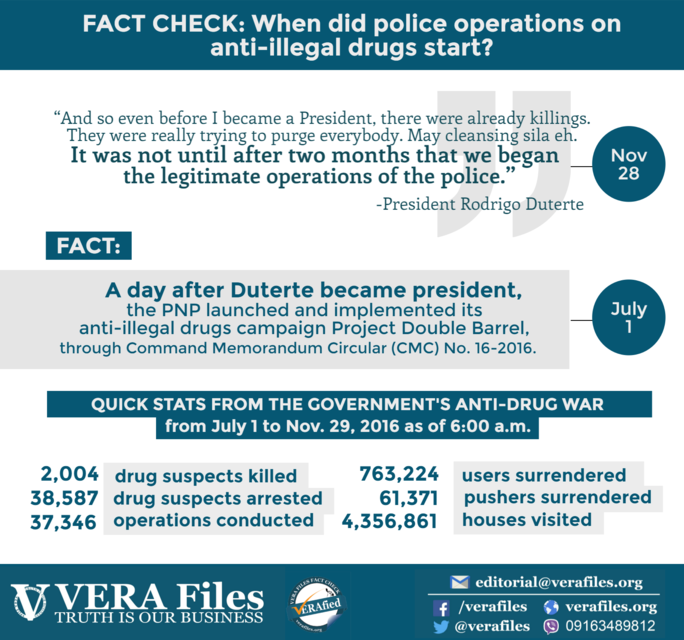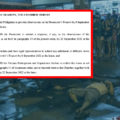The United Nations High Commissioner on Human Rights (UNHCHR) has called on the Philippine government to scrap “Oplan Tokhang” and to allow an independent investigation of all killings in order to hold erring parties accountable and compensate the victims and their families.
These were among the 21-point recommendations of the High Commissioner in a 26-page report released on Thursday, June 4, that details incidents of violations of human rights from 2015, and even as the country struggles against the coronavirus disease (Covid-19).
The report, which was requested by the UN Human Rights Council in 2019, said the Duterte administration’s war on drugs has led to widespread killings with “near impunity” to offenders “despite credible allegations of widespread and systematic extrajudicial killings in the context of the campaign against illegal drugs.”
While the report acknowledged “important human rights gains” in recent years, particularly in economic and social rights, it lamented that President Duterte’s “harmful rhetoric” and incendiary” language combined with his administration’s “heavy-handed focus” on eliminating illegal drugs and threats from insurgents has led to serious human rights violations.
UN High Commissioner for Human Rights Michelle Bachelet is scheduled to present the report to the UN Human Rights Council during its 44th session on June 15.
The report was based on official data and documents collected from government and non-government sources, including 893 written reports, legislation, policy guidelines, court documents, police reports, videos and photos and open source reports, as well as interviews with victims and witnesses. “The Government of the Philippines provided substantial written input, including in response to two extensive lists of questions,” it noted.
Specifically, the High Commissioner is seeking the repeal of Philippine National Police (PNP) Command Circular No. 2016-16, issued by then director general and now Sen. Roland Dela Rosa, to “put an end to extrajudicial killings, arbitrary detention and other violence targeting suspected drug offenders and people using drugs” and to discard “drug watch lists.”
The report noted that “Oplan Tokhang” allowed “house visitations (that) raise important due process concerns as they did not require search or arrest warrants and could be conducted solely on the basis of a person’s inclusion on a ‘drug watch list’.”
“Barangay officials compiled lists of suspected “drug personalities” and passed them to the police. Individuals had no legal recourse to challenge their inclusion in the list,” the report said, citing that out of 42,286 anti-illegal drugs operations by the police from July 1, 2016 to Nov. 30, 2017, only 507 – or 1.2 percent – were based on an arrest warrant.
President Duterte came out with his own “narcolists” of government officials, including military and police officers, allegedly involved in the drug trade.
Also, the report noted that the terms “negation” and “neutralization” of “drug personalities” appear throughout Circular 16-2016 which may have emboldened police to treat the circular as “permission to kill”. International human rights law prohibits arbitrary deprivation of life, it said.
To hold violators accountable for human rights abuses, the UN body calls for the creation of an independent body that will be authorized to “conduct prompt, impartial, thorough, transparent investigations into all killings, and into alleged violations of international humanitarian law, with a view to prosecution and remedies for victims and their families.”
The report cited a need for “transparent and comprehensive reporting system” for data on killings by state and non-state actors. It noted that while the PNP report showed that 8, 663 people were killed in Duterte’s campaign against illegal drugs since July 2016, other estimates were “up to triple that number.”
“OHCHR ultimately cannot verify the number of extrajudicial killings without further investigation. On the basis of information reviewed, the drug campaign-related killings appear to have a widespread and systematic character,” it said.
Despite the number of deaths, officers have only been convicted for the 2017 killing of 17-year-old Kian delos Santos from Caloocan City.
The report also found that at least 248 legal professionals, journalists, human rights defenders and trade union members have been killed due to their work between 2015 and 2019.
To put order in the reporting system, the report also recommended improvement in the systems to compile and publish consistent, disaggregated data on all allegations of extrajudicial killings, and better cooperation between law enforcement bodies and the Commission on Human Rights (CHR).
The CHR, it said, would need to strengthen its investigative and forensic capacity, including through adoption of its Charter.
Legislation establishing a National Preventive Mechanism on Torture was likewise recommended.
Also in the area of legislation, the report suggested a comprehensive review of the laws and policies relating to narcotics, including the mandatory penalties for drug offenses, possible decriminalization of personal possession and use of certain drugs, and implementation of alternative measures to conviction and punishment and other human rights-based responses.
Families of victims of drug-related killings must be given adequate assistance, including financial aid, legal support and psycho-social services, the report said.
Red-tagging or labelling of human rights defenders as communists or terrorists did not escape the UN High Commissioner’s comprehensive report. This, it said, has been a persistent and powerful threat to civil society and freedom of expression.
“The pervasive nature of Government red-tagging is clearly illustrated by the inclusion of 649 names in a Government court petition to designate CPP and NPA as terrorist groups under the Human Security Act,” the report said.
Red-tagging, it said, has proven extremely dangerous as it cited the killing of at least four human rights defenders — activist Haide Flores, lawyer Benjamin Ramos Jr, city councilor Bernardino Patigas, and lawyer Anthony Trinidad – whose murders in Negros Island in 2018 remain unsolved.
“Human rights advocacy is routinely equated with insurgency and the focus diverted to discrediting the messengers rather than examining the substance of the message,” the report said. “This has muddied the space for debate, disagreement and for challenging State institutions and policies.”
“The long-standing overemphasis on public order and national security at the expense of human rights has become more acute in recent years, and there are concerns that the vilification of dissent is being increasingly institutionalized and normalized in ways that will be very difficult to reverse,” the report said.
The UN High Commissioner also have some words on the Anti-Terror Bill that the House of Representatives approved on third reading earlier this week.
“The proposed 2020 Anti-Terrorism Act, slated to replace the already problematic Human Security Act, dilutes human rights safeguards, broadens the definition of terrorism and expands the period of detention without warrant from three to 14 days, extendable by another 10 days. The vague definitions in the Anti-Terrorism Act may violate the principle of legality,” the report said.
It noted that while the Philippine Constitution and laws contain strong human rights provisions, several laws give the authorities wide discretion to detain and charge individuals on the grounds of national security without adequate human rights safeguards. It cited laws such as the Human Security Act of 2007, the 2012 Cyber Crime Protection Act, the 2018 Republic Act 10973 (known as the subpoena powers law) and laws on sedition.
“Worrying new laws and amendments have been proposed with the stated aim of strengthening public order and countering terrorism, which risk eroding constitutional and other legal protections. Proposed bills to restore the death penalty for drug-related offences, and to significantly lower the age of criminal responsibility would breach the Philippines’ obligations under international human rights law.”
Since the start of the Covid-19 lockdown in March, Duterte’s “militaristic” approach in handling the health crisis has been met with criticisms from various rights groups.
In April, incidents of excessive use of force by law enforcers against quarantine violators were condemned, such as when quarantine enforcers in Quezon City beat a fish vendor and when former soldier Winston Ragos was shot for refusing to stop at a police checkpoint. Some ordinary citizens were arrested with or without warrant for commenting on social media against the government’s coronavirus response, while some were intimidated or ordered to issue public apology.
“OHCHR welcomes important efforts to improve the protection of economic and social rights and access to essential goods and services across the country,” the report said. It is crucial, however, that this be guided by a human rights-based approach, focused on “leaving no one behind.”
Read full report here.




